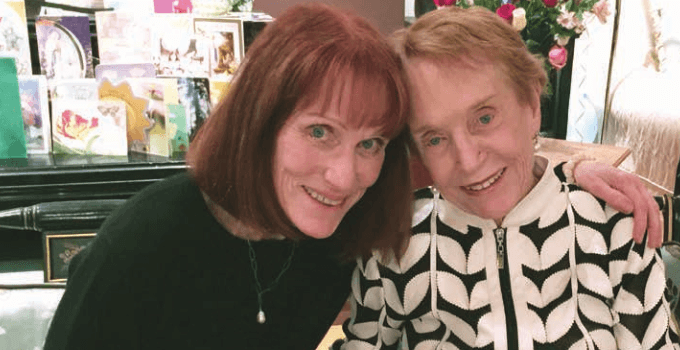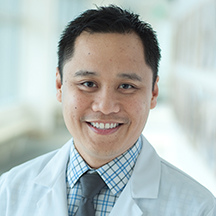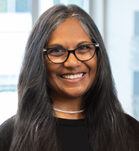

PATIENT STORY: The Evolving Role of Caregivers
by Zara Jethani
Like many people, Alice Beirne was unprepared to become a cancer caregiver. But with hope and determination, Alice and a team of relatives stepped in to help a loved one navigate through a year of cancer treatment and recovery. “It’s a journey, and every day you learn something new,” says Alice, a retired human resources director who lives in Los Angeles. “You feel you have to be really strong. But you have to be kind to yourself too.”
A cancer diagnosis affects every member of the family, especially spouses and other family members who may be the primary caregivers. Family caregivers are crucial to the physical and emotional well-being of people with cancer. But the day-to-day responsibilities of caring for a sick person can be overwhelming.
Not only do caregivers coordinate the routine chores of life—meals, cleaning, driving or arranging transportation—they still need to meet the needs of other family members, which may include young children.
Caregivers can play a significant role in the patient’s outcome, and increasingly researchers want to better understand how the caregivers themselves function and cope. In recognition of this, the Institute of Medicine, which is part of the National Academy of Sciences, released a landmark report in September, “Families Caring for an Aging America,” which looks at the impact of caregiving on their health, economic security and overall well-being. The report shines a light on the needs of family caregivers.
Alice’s sister, Rita Cornyn, 86, was diagnosed with ovarian cancer in April 2015. She underwent a long course of chemotherapy and experienced occasional setbacks that landed her in the hospital. Alice and Rita’s three grown children quickly formed a team to see their beloved Rita through her cancer treatment. Each person gravitated toward tasks that played to their strengths, Alice says. “We thought it was key to talk together as a family and make sure we didn’t forget something important,” she says. “We had to identify the best team of doctors along with organizing medical appointments, a medication schedule, chemo appointments, aftercare and supporting Rita in the hospital, twice, for infections. It was a team effort that really paid off.”
Alice spent several nights each week with Rita and often just sat with her sister and watched television. “Having someone there was important for her well-being,” Alice says. “The goal was to soothe her and to let her know she was in good hands and that we were in this together. She told me once that she felt safe when I was there.”
Rita’s caregiver team set up schedules so that everyone worked in sync. The family quickly learned that it was better if two people accompanied Rita to her medical appointments. “Different people would pick up information that others missed or ask questions that needed to be answered,” Alice says. Each caregiver left notes for the others as they shuttled in and out of Rita’s Los Angeles house. Rita’s daughter and Alice set up a computer-based medication schedule to make sure the pills were dispensed properly and refills ordered.
Part of caregiving also means recognizing one’s limits. Alice recalls her brother remarking one day that she sounded exhausted and should take a break. “You’re also dealing with the sadness and emotional part of your relationship with the person,” she says. But Alice learned she didn’t have to have all the answers. “I had to get out of my own way. I learned to ask Rita what she needed instead of me thinking I had to be smart and figure it out.”

Little wonder caregivers often suffer from burnout. “It’s like juggling several balls in the air,” says Marlon Saria, PhD, RN, an advanced practice nurse researcher at Pacific Neuroscience Institute. “They have to take care of the patient. They have to take care of their kids. They have their own jobs. Caregivers are trying to keep everything the way it was before the diagnosis. They take care of everyone and everything but often fail to take care of themselves.”
In response to research that has shown that relentless stress can undermine the health of caregivers, a new family caregiver initiative is being developed at Providence Saint John’s Health Center. This initiative aims to facilitate support for caregivers as part of an overall comprehensive package for cancer patients and their families. These services can include psychological counseling, support groups, referrals to community resources and help with logistics, such as consolidating appointments so that caregivers aren’t constantly ferrying patients to the hospital or doctors’ offices. The initiative will be part of the Center for Quality and Outcomes Research at the Saint John’s Cancer Institute and Pacific Neuroscience Institute, a program that aims to design and implement interventions that will improve the quality of care for caregivers, as well as enhance the quality of life and well-being for both the family caregivers and the patients they care for. “We will work closely with the family from diagnosis through treatment and remission or even at the end of life,” says Dr. Saria.
“It’s important to remember that caregivers are survivors too, because they’re surviving the challenges and responsibilities of this disease and its treatment.” Doctors, Alice’s husband, Carlos, and other relatives kept Alice on an even keel during her year as a caregiver. “When you’re a caregiver, you have a mission and you’re so focused on it,” Alice says. “But you also have to take care of yourself.”
Rita, who is now in remission and in good health again, made things easier on her caregiver team with her own spirit of determination, Alice says. “My sister is a very strong woman. She’s very accomplished in her life and has a very strong faith and strong resolve. When she hits problems, she’s a fighter. That is a wonderful person to be a caregiver for, because she was able to partner with me and her family.”
Top image: Caregiver Alice Beirne and her sister Rita Cornyn.
Adapted from the article LIFE GOES ON written by LINDA MARSA in INNOVATIONS, FALL 2016.
About the Author

Zara Jethani
Zara is the marketing director at Pacific Neuroscience Institute. Her background is in molecular genetics research and healthcare marketing. In addition, she is a graphic designer with more than 20 years experience in the healthcare, education and entertainment industries.
Last updated: November 13th, 2019